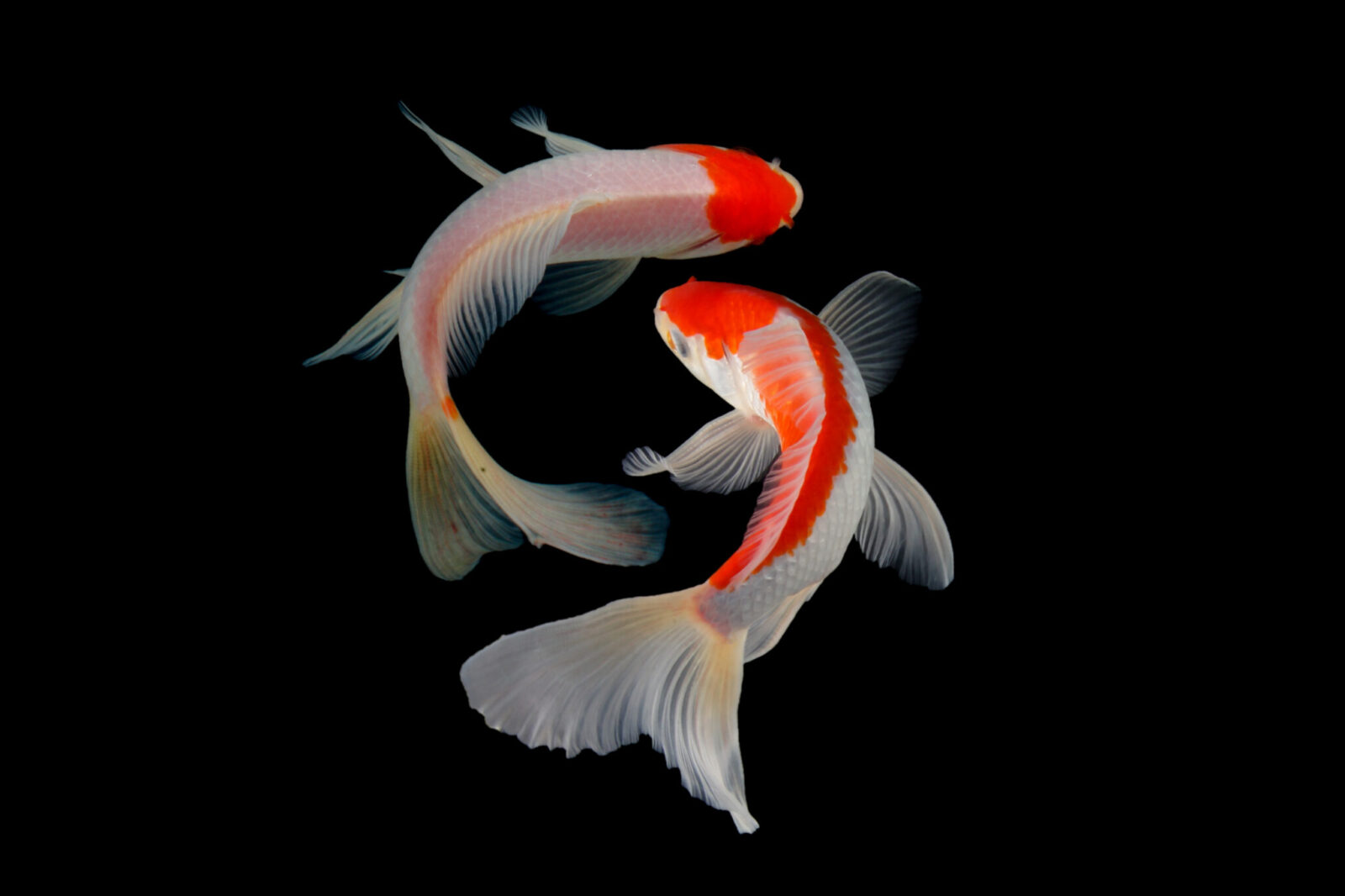Culture
Every day on my commute to work, I take Singapore’s hyper-efficient metro system into the city-state’s bustling commercial hub. Emerging from the train’s air-conditioned comfort, the damp, humid air outside never fails to shock – it’s like being thrust into a living sauna. Yet despite this sensory jolt, there’s always a moment of respite: outside the steel-and-glass skyscraper that houses my office, koi carp glide gracefully around fountains in a palm-shaded pond. Savoring this tranquil scene, I feel ready for whatever the day may hold.
In fact, far beyond presenting a pretty little scene, those koi carp carry layers of symbolic meaning intricately tied to the Chinese philosophy of feng shui. Visitors are often surprised by how seriously this ancient metaphysical practice is still taken in Singapore, despite the island nation’s futuristic skyline and cutting-edge infrastructure. Yet it remains a vital part of everyday culture for the country’s predominantly ethnic Chinese population, shaping both architecture and interior design.
There’s a lot at stake here, because many floors up from my humble desk, the building houses Singapore’s sovereign wealth fund, entrusted with managing billions of dollars in foreign reserves.
Feng shui means “wind-water” in Chinese. It is understood as the art of aligning individuals with their surroundings to enhance well-being and prosperity. The pool outside my office building is home to koi of five different colors, and that’s not accidental. Each embodies one of the core feng shui elements – Metal, Fire, Earth, Water, Wood – to maintain harmony and equilibrium within the adjacent skyscraper. There’s a lot at stake here because, many floors up from my humble desk, the building houses Singapore’s sovereign wealth fund, entrusted with managing billions of dollars in foreign reserves.
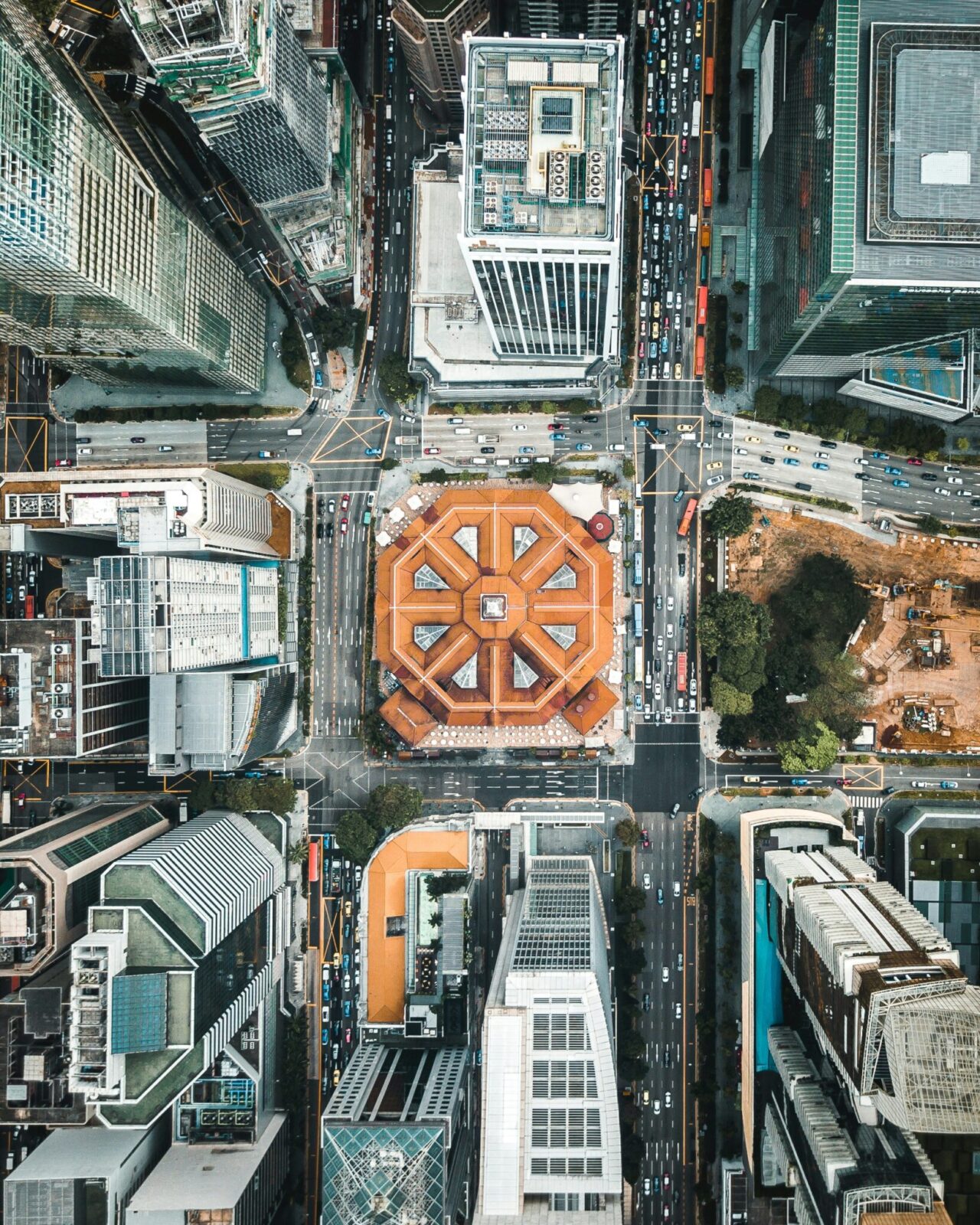
A geomancer’s ideal: Singapore’s famed Lau Pa Sat market from above. (Alamy)
Auspicious
Blending tradition and progress has been instrumental in shaping Singapore into the sophisticated Southeast Asian smart-nation it is today. The vibrant central business district clustered on the south bank of the Singapore River can trace its roots back to a time when the landscape looked dramatically different. January 1819, to be precise. That’s when Sir Thomas Stamford Bingley Raffles, a British colonial officer who spearheaded the spread of the British Empire in East Asia, first set foot at the river’s mouth. Where mangrove swamps and mosquito-infested jungles pulsed, Raffles founded Singapore.
Through subsequent land reclamation, Boat Quay emerged as a crescent-shaped waterfront and became known as the belly of the carp. Legend has it that Chinese merchants, lured by the piscatorial promise of good fortune, flocked to this auspicious location. And thus began Singapore’s gradual ascent into a global trading hub.
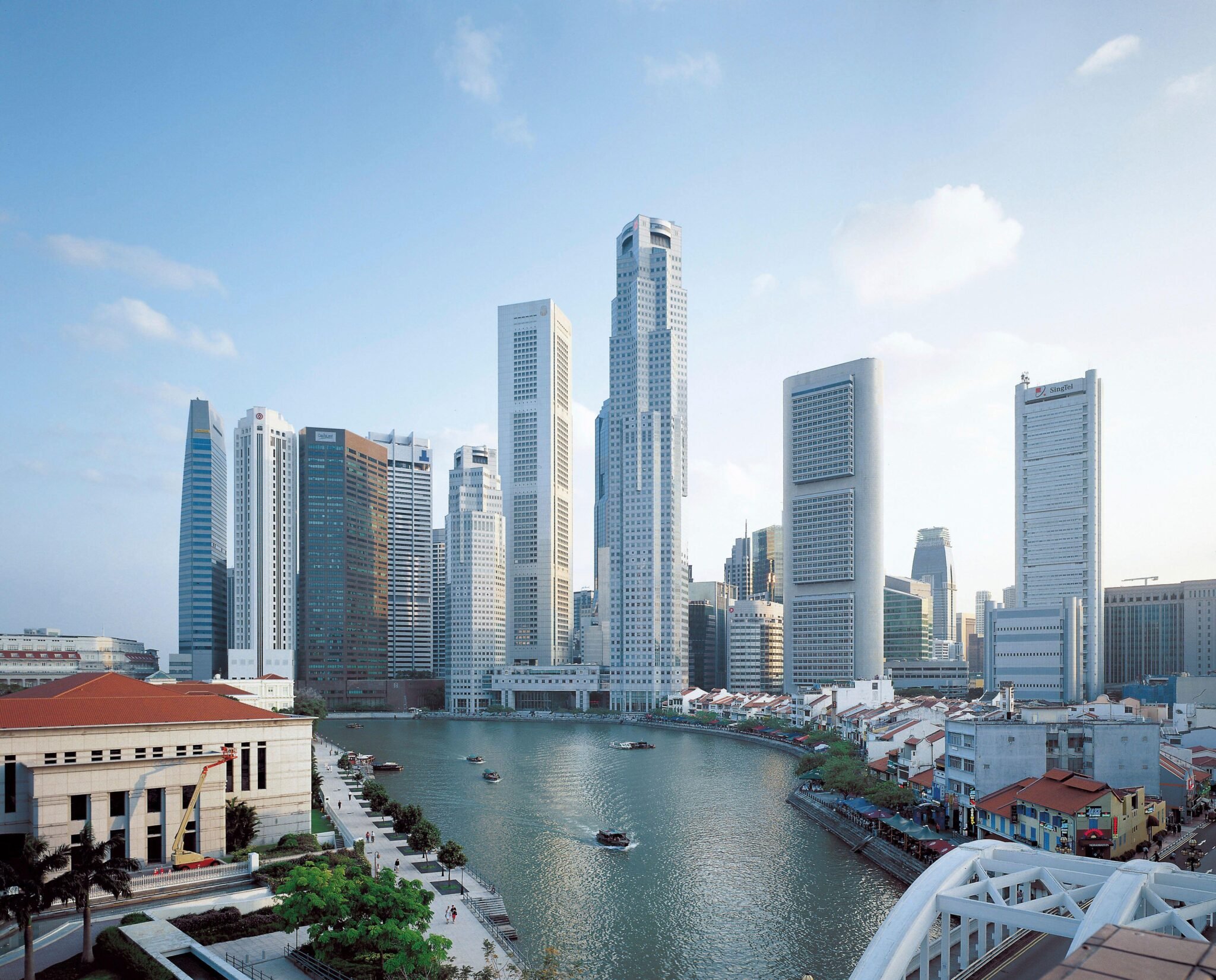
Boat Quay, where Singaporean commerce is protected by the belly of the carp. (Alamy)
Soon enough, the area’s reputation attracted financial institutions. United Overseas Bank secured an especially fortuitous spot. Today its twin-towered headquarters soars 280 metres (920 feet) above the very heart of the carp’s meaty belly. Aligning with feng shui practice, its octagon-shaped design harnesses the significance of the number eight to draw in positive energies.
Oblivious to outside eyes perhaps, almost every landmark in Singapore seamlessly integrates feng shui principles. Take one of the city’s most iconic structures, the hotel and casino Marina Bay Sands. Israeli-Canadian architect Moshe Safdie has revealed that geomancy consultations influenced his distinctive curved design for the building’s top skypark floor, which seems to float atop three glass and steel towers. Geomancy? An ancient act of seeking knowledge of the future by interpreting the positions and patterns of geographic features such as rock formations and soil. In Europe, geomancy was held as a black art during the Renaissance and forbidden. But during the design stage of Marina Bay Sands in the early 2000s, in order to induce the alignment of positive energies, a feng shui master recommended Safdie to steer clear of symmetry. And so we have the dramatic offset cantilevered roof that sits atop the towers today.
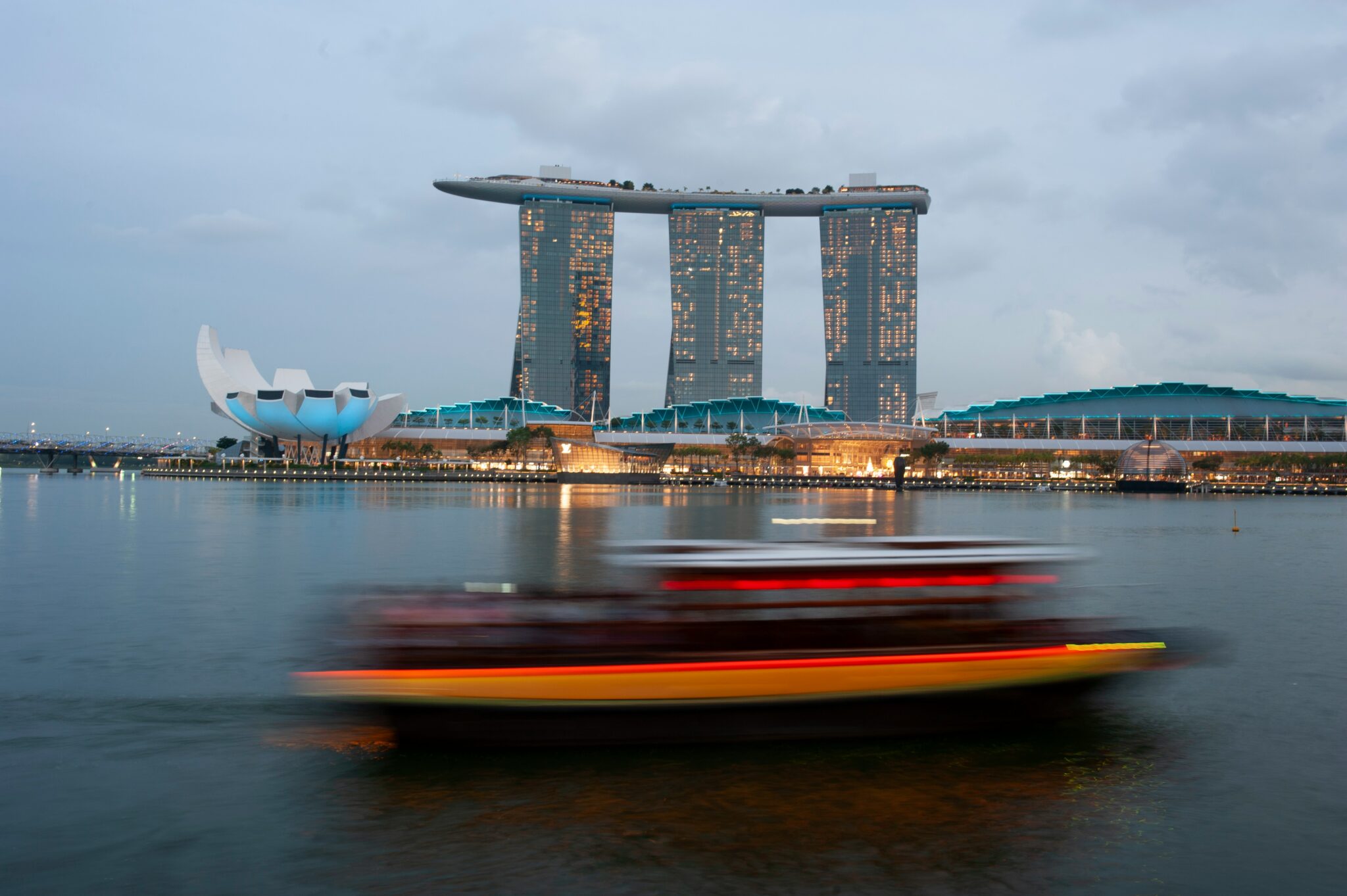
Marina Bay Sands: beneficent asymmetry in Singapore’s landmark hotel. (SF Shen/Unsplash)
Suspicious
Singapore’s embrace of feng shui isn’t confined to grand landmarks. It’s also woven into the fabric of domestic life. When visiting local Chinese friends’ homes, it’s common to encounter a feng shui screen curtain at the entrance, serving as a symbolic barrier against harmful influences and creating a haven of safety. An ornamental wooden ladder often leans against a living room wall, symbolizing growth in life, finances or relationships.
The contrast to my own disorderly apartment is hard to ignore. Maintaining a clutter-free environment is crucial for positive energy flow, admonishes Master Alvin Sai, founder and principal consultant of MZ玄 Feng shui Mastery. Master Alvin originally trained as an engineer, but now, self-described as “Singapore’s Leading Metaphysicist”, he represents a modern breed of geomancers who are challenging misapprehensions. “Younger peoples’ mindsets change once I show feng shui is a science that’s based on magnetic fields and has nothing to do with religion,” he explains.
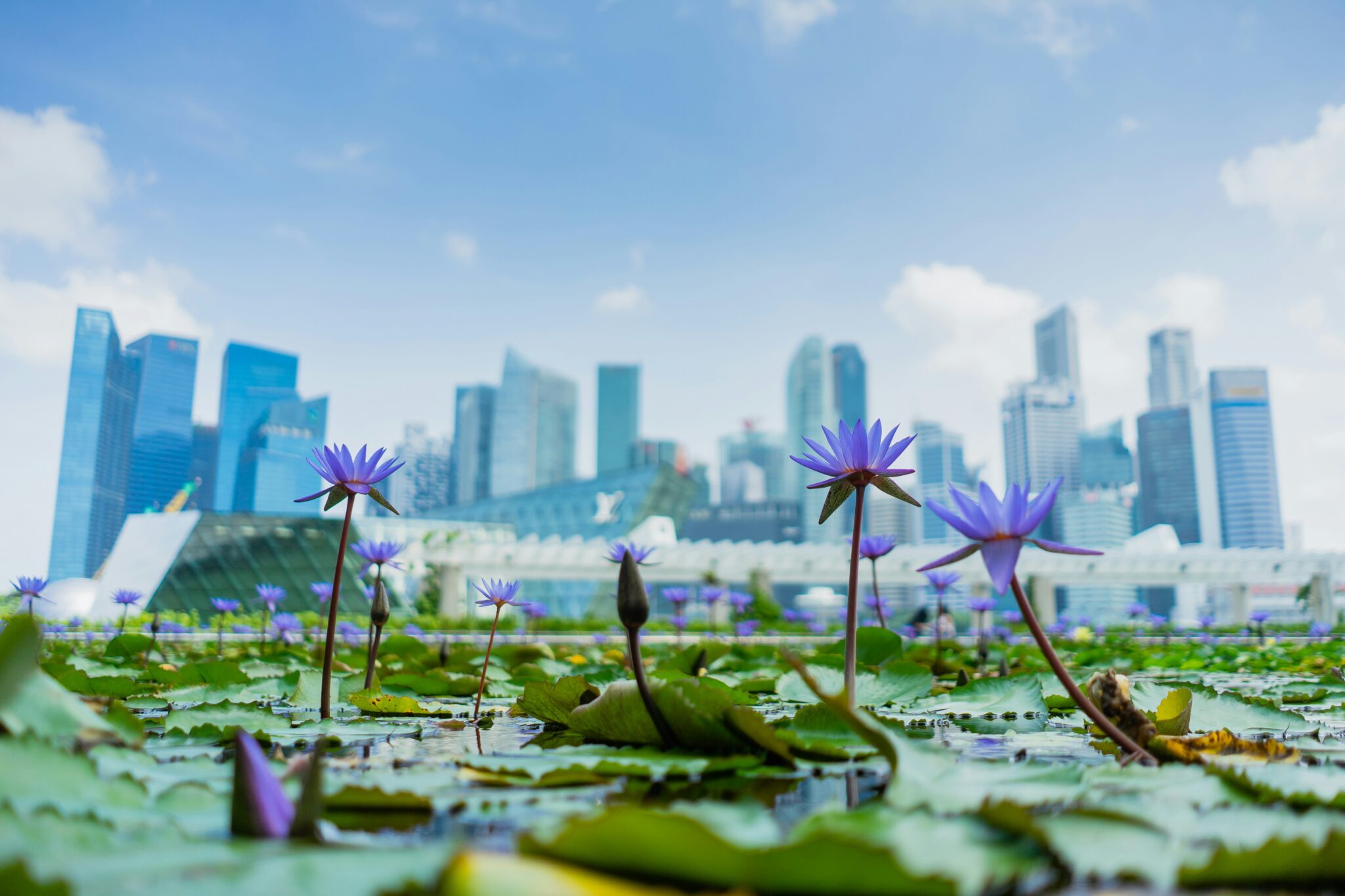
Nature integrates with civilization atop Marina Bay Sands. (Muhammad Faiz Zulkeflee/Unsplash)
Master Alvin is hired by people of all ages and races (including expats) to help address a swathe of lifestyle issues including poor sleep quality. “It’s often as simple as getting the bed positioned correctly. A bad night’s sleep often leads to health issues and lack of focus at work. Feng shui can bring significant well-being and career benefits,” he says.
Western minds predisposed to their own cultural histories will probably always view feng shui with a dose of suspicious scepticism. But curiosity is a good thing. And as Singapore maintains its impressive economic rise, consistently punching above its weight on the global stage, one can’t help but wonder if feng shui might be an unsung architect of the city’s enduring prosperity.
Either way, those koi carp gliding slowly round the pond below my office certainly look pretty every morning.
Topics in this article
-

- Reporter: Rod Mackenzie
- Rod Mackenzie began living a journalist’s life in London in the 1990s (Sunday Times, Sunday Telegraph, Business Traveller) before taking some truly wild odysseys to far-flung corners of the globe. He has been based in Singapore since 2010 and is now content director for a leading digital agency.

